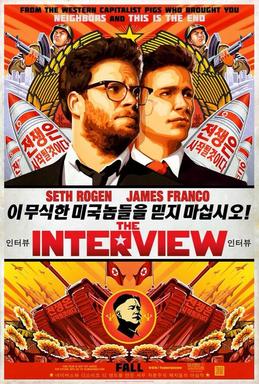"Under the Sun" Screening

Everyone vaguely knows about the 1984-esque living conditions in North Korea, but no one really knows how people there live. Western media addresses this lack of information in a variety of ways, ranging from a barrage of articles to books to films on the little that we do know.
The North Korean government allowed Mansky to travel to North Korea and film the progression of a young girl's life as she transitioned into the Children's Union. In the beginning of the film, the young girl, Zin-mi, was portrayed going through her everyday life with an unsettling sense of perfection in every scene. Everyone around her presented an unwavering sense of patriotism, every building around her had stunning architecture, and everything was abundant. After a while, little faults began crawling into the beginning and ends of every shot and the hint of fabrication began to shine through.
During one scene, Zin-mi's family repeated a dinner scene several times because the director sensed the lack of enthusiasm in every take. During the Q&A session, Bennett stated that Zin-mi most likely had never seen so much food on the table for dinner. Throughout the movie, the lights in every building were borderline blinding for the audience, but Bennett assured us that even the electricity was a farce. Even in Pyongyang, the wealthiest city in North Korea, electricity was not a necessity but rather a luxury. I didn't realize that North Korea had so little money.
Mansky ends the film with Zin-mi quietly breaking down during a scene. Her tears slowly roll down her cheeks as she doesn't make a sound. The director tells her to think of something funny that happened to her in an effort to comfort her, but she cannot think of anything funny that has happened to her. The director then suggests her to perhaps recite a poem that makes her happy. A silence washes over the theater for a few seconds before she recites a poem praising the honorable Kim Jong Il as the final words for the film.
Bennett touched on some more topics about North Korea that the film did not cover, such as the nuclear arms crisis and the 3 generation punishment. Before, my idea of North Korea was so vague that I treated the government like a joke, but now I know that the government is no joke. The definition of human rights is different all around the world, but it is clear that human rights is missing in the North Korean government's vocabulary.
I left the theater with a sense of guilt. It is such a privilege to be living in America.






0 comments:
Post a Comment